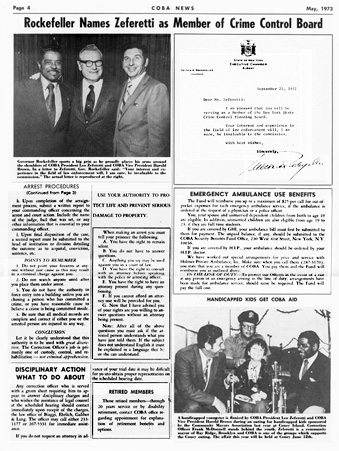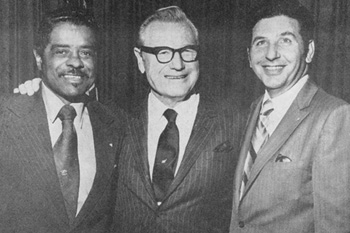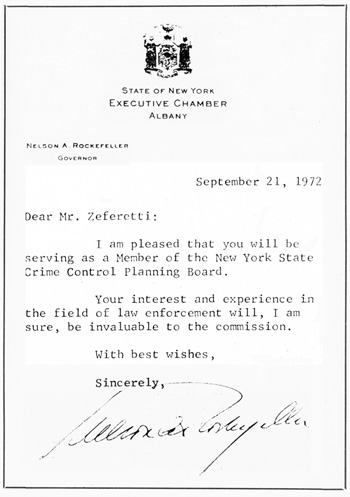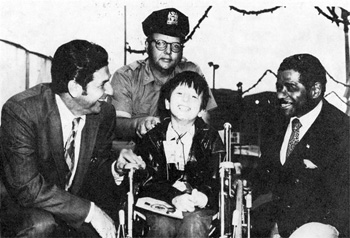In the early summer of 2010, Errol D. Toulon, a Monroe College professor and retired Correction Academy excutive officer, made available to this website a copy of that issue. [See image of Page 4 at right.] Toulon also had been a first vice president of the Correction Officers Benevolent Association. From that issue copy, the New York Correction History Society webmaster has created this four-page web presentation of extracted images and texts, one web page for each of the issue's four printed pages. Near the bottom of each of the presentation's four web pages is a descriptive list of links to all its pages.

(Continued from Page 3) k. Upon completion of the arraignment process, submit a written report to your commanding officer concerning the arrest and court action. Include the name of the judge, bail that was set, or any other information that is essential to your commanding officer. l. Upon final disposition of the case, a second report must be submitted to the head of institution or division detailing the outcome as to acquital, conviction sentence, etc. POINTS TO REMEMBER 1. Do not point your firearms at anyone without just cause as this may result in a criminal charge against you. 2. Do not search anyone until after you place them under arrest. 3. You do not have the authority to force entry into a building unless you are chasing a person who has committed a crime, or you have reasonable cause to believe a crime is being committed inside. 4. Be sure that all medical records are complete and correct if either you or the arrested person are injured in any way. CONCLUSION Let it be clearly understood that this authority is to be used with great discretion. The Correction Officer’s job is primarily one of custody, control, and rehabilitation -- not criminal apprehension. When making an arrest you must tell your prisoner the following. A. You have the right to remain silent.
B. You do not have to answer questions. C. Anything you say may he used against you in a court of law.
E. You have the right to have an attorney present during any questioning. F. If you cannot afford an attorney one will be provided for you. G. Now that I have advised you of your rights are you willing to answer questions without an attorney being present. Note: After all of the above questions you must ask if the arrested person understands what you have just told them. If the subject does not understand English, it must be explained in a language that he or she can understand. 
If you are covered by GHJ, your ambulance bill must first be submitted to them for payment. The unpaid balance, if any, should be submitted to the COBA Security Benefits Fund Office, 230 West 41st Street, New York, N.Y. 10036. If you are covered by HIP., your ambulance should be ordered by your HIP doctor. We have worked out special arrangements for price and service with Holmes Private Ambulance, Inc. Make sure when you call them (287-3170), you state that you are a member of COBA. You pay them and the Fund will reimburse you as outlined above. IN THE LINE OF DUTY -— To protect our Officers in the event of a riot at any prison or an emergency arising in the line of duty, arrangements have been made for ambulance service, should same he required. The Fund will pay the full cost. WEBMASTER NOTES: Leo Zeferetti was the president of COBA from June 1968 until November 1974 when he was elected to Congress from Brooklyn (Bay Ridge area). A Democrat, he served four terms in the House of Representatives where he chaired a narcotics abuse and control committee. In more recent years he has made his home in Florida. Upon Zeferetti's election to Congress in 1974, his COBA vice president Harold Brown succeeded him as the association's president. Brown served a few years in that COBA role. He is deceased.
Also visit on this site:
|







